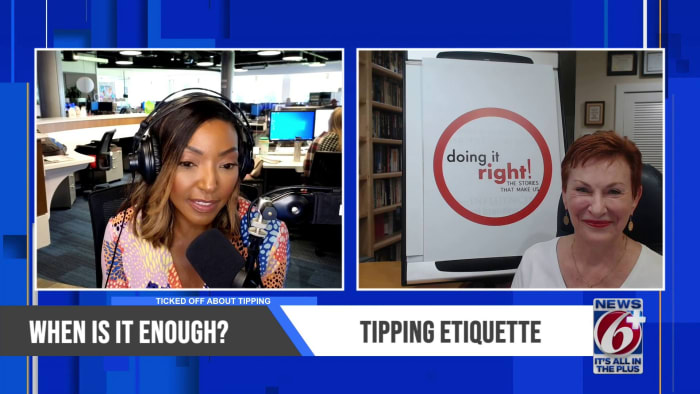Perhaps you’ve noticed. We have reached a tipping point in the country over tipping.
To tip or not to tip has led to Shakespearean soliloquies by customers explaining why they refuse to tip for certain things.
During the height of the COVID-19 pandemic, customers were grateful for those who seemingly risked their safety so we could get groceries, order dinner or anything that made our lives feel normal. A nice tip was the least we could do to show gratitude.
But now that we are out about and back to normal, the custom of tipping for just about everything has somehow remained; and customers are upset.
A new study from Pew Research shows most American adults say tipping is expected in more places than it was five years ago, and there’s no real consensus about how tipping should work.



No, I think this goes to show that the whole idea that people will cry if prices are raised to increase wages is a lie. People who buy products and services want the people who are tasked with delivering those products and services to make a good living. They are willing to pay more in the form of tips; they will be willing to pay more in the form of prices. Just give people raises already ffs.
(And that’s not to say that prices will actually increase all that much if wages increase because that’s also mostly a lie told to protect corporate profit margins.)
Prices would raise, because they always raise to however much people are willing to pay for it. As long as people are tipping, they’re voluntarily adding that instead of waiting for the market to correct for it. That said, you are also correct that prices are NOT the only place that businesses will go to protect their margin. If margins get too low to run a business due to labor, rents will have to decrease to keep businesses in the buildings. Similarly, if margins increase too much, landlords will increase the rent.
There’s a faulty assumption in here that I was to call attention to: it’s the it’s that capitalist companies are charging less than the market will bear.
100% of the time, prices are as high as they can possibly be. There’s no situation where a company says, “we could charge them $5, but let’s charge them $4”.
If we stopped tipping and people got raises, the balance would have to come from CEO salaries (etc) which is what they’re really saying when they say they can’t do it.
That said, for situations where tipping has become kind of expected but not required (eg baristas, who are paid minimum wage, but not eg waitstaff who are paid less than minimum wage), the expectation that prices have to go up to account for raised wages will raise “what the market will bear.”
Maybe not for deliveries? Since everyone already thinks delivery fees are tips? Idk.